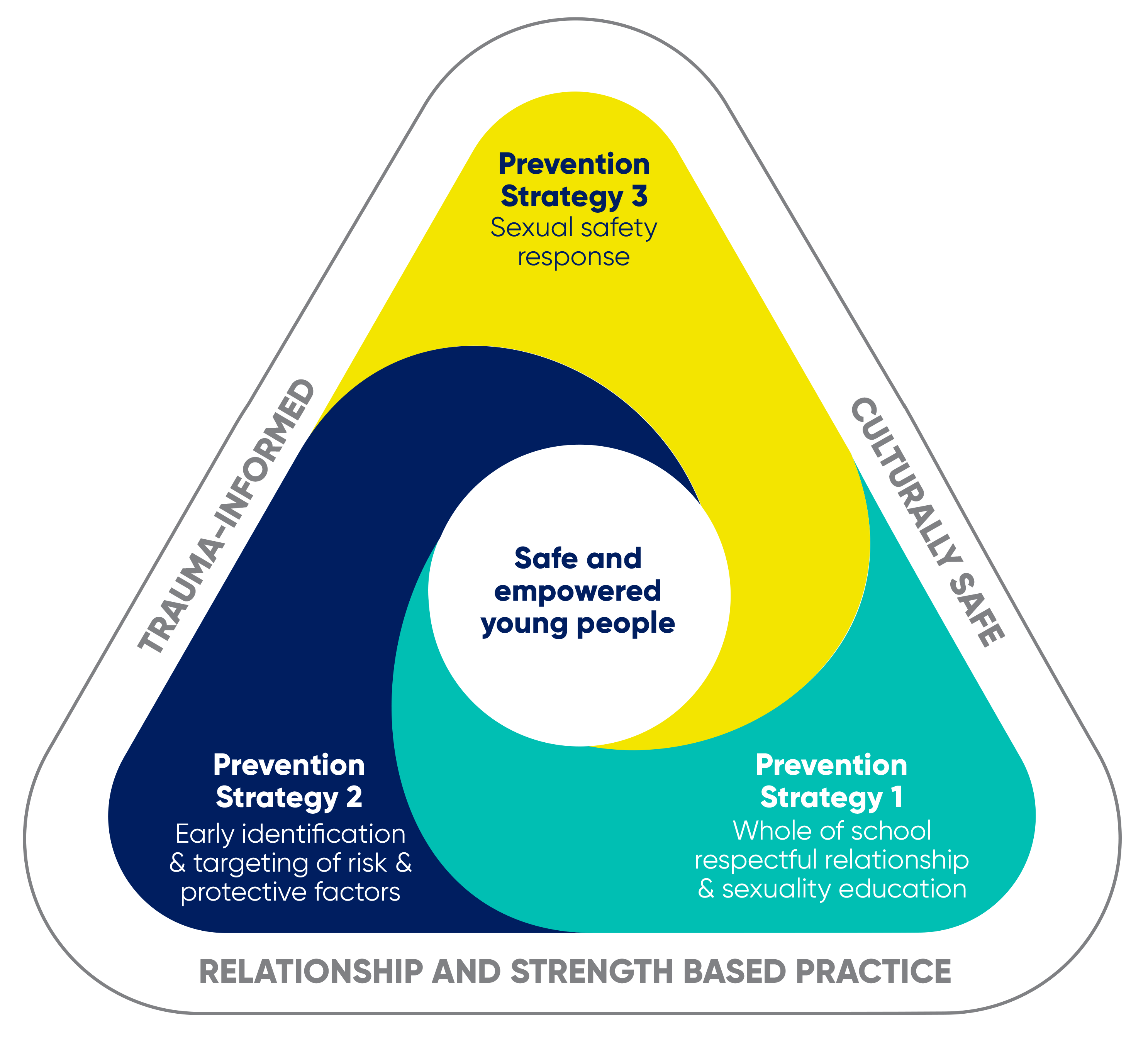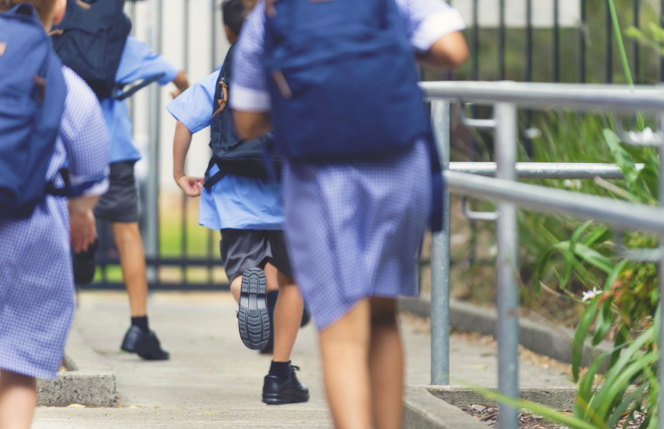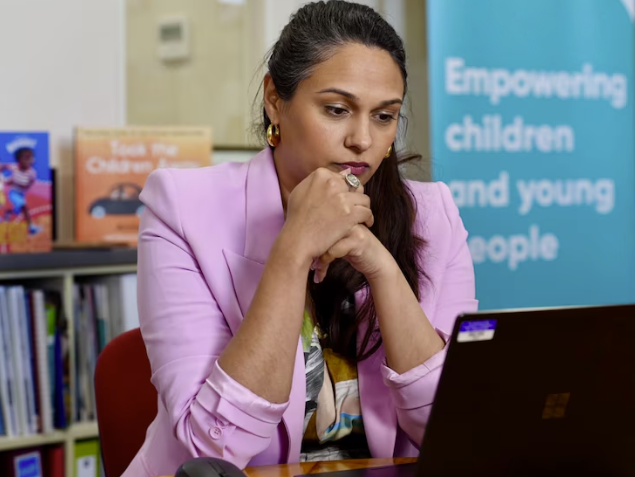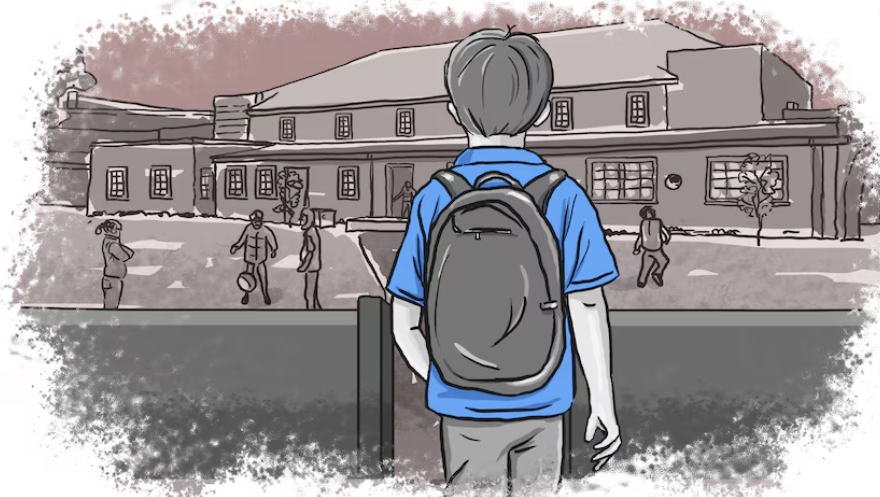Power to Kids in Schools
Strengthening prevention and responses to child sexual exploitation, harmful sexual behaviours and dating violence for children and young people.

Safeguarding Children
Safeguarding children is the responsibility of every leader, teacher and staff member in schools and early learning centres. Almost 1 in 4 Australians experience one or more types of child sexual abuse (ACMS, 2023). Prevention and early intervention are critical.
Children and young people are navigating an increasingly complex world in their personal relationships, on social media and in unregulated online environments. Power to Kids was developed to address several recommendations made by the Royal Commission into Institutional Responses to Child Sexual Abuse and has now been delivered to over 1,500 professionals nationally.
Power to Kids in Schools
Power to Kids in Schools is a professional learning program that upskills educators, schools and early learning centres to strengthen prevention and responses to child sexual exploitation, harmful sexual behaviours and dating violence. Power to Kids supports educators with the knowledge and practical skills to hold 'brave conversations' around sexual health and safety. The program features three evidence-based strategies including a school-wide education approach, early identification and intervention, and connecting with appropriate services to disrupt harm.
Responding to disclosures
Power to Kids in Schools supports educators, schools and early learning centres to feel more confident to act within the scope of their role and responsibilities. The program builds a clear and common language around sexual safety that supports young people to articulate behaviours with confidence, and educators to create safe spaces for brave conversations. The program emphasises systems-based approaches and working closely with statutory services and local support services so schools can better engage specialist support when needed.
Whole of school, centre and community approach
Power to Kids in Schools supports broader collaboration across school and early learning centre system leaders, students and parents in the shared responsibility of prevention and responses to sexual safety. The program provides tools to explore current levels of understanding, confidence and knowledge to inform inclusive, trauma-informed and culturally safe conversations with the broader school community.
Program background & delivery details
Power to Kids is proud to be available on the South Australian Early Years Boost Menu. If you are a South Australian early years centre who wish to engage our Power to Kids professional learning program please reach out to us on powertokids@mackillop.org.au
Aligned with the Respect Matters portfolio in the Australian Curriculum, Power to Kids in Schools embeds a whole-of-school approach through three evidence-based prevention and response strategies. Educators and schools explore each strategy within their own context. A deep understanding of trauma-informed, culturally-safe, relationship and strength-based practice is fostered to support effective implementation. Participants gain confidence to create safe spaces for brave conversations with young people on key sexual health and safety topics.
By upskilling the whole school community, Power to Kids in Schools aims to increase young people’s understanding of healthy relationships and sexual safety. Through increased understanding and improved strengths-based relationships, children and young people are more likely to ask questions, disclose concerns and seek help when needed.

Power to Kids in Schools is an adaptation of the successful Power to Kids in Out of Home Care program. Power to Kids in Out of Home Care is a multi-disciplinary approach developed by MacKillop Family Services in partnership with the University of Melbourne. The program aims to strengthen prevention and responses to sexual exploitation, harmful sexual behaviours and dating violence for young people living in residential care. The program is informed by a strong evidence-base of international research and the professional experience of practitioners on the ground.
Power to Kids in Out of Home Care was developed to address several recommendations made by the Royal Commission into Institutional Responses to Child Sexual Abuse and has now been delivered to over 1,500 professionals nationally.
The Power to Kids in Schools program is implemented over several phases. During the ‘readiness’ phase we partner with schools to understand their specific contexts and needs. We start our training with leadership to ensure understanding and support is consistent across the school. The second phase is ‘whole of staff’ professional learning. This includes introductory elearns, a professional learning day, and access to an online portal that contains a library of resources and tools for educators. The final phase is implementation. Power to Kids in Schools supports schools to build capacity internally to sustain and continue to deepen knowledge across the key sexual safety topics. There are also mechanisms to embed practice and tools to support monitoring progress.
Power to Kids in Schools utilises a “Brave Conversation model.” This model follows the TALK acronym:
Take the Initiative
Ask the child what they think or feel
Let them know the facts and range of beliefs
Keep the conversation going
(Faulkner & Schergen, 2016)
This is a simple method for having a trauma-informed conversation and keeping focus on a young person's feelings and values. The brave conversation model utilises fact-based education, eliminating shame and empowering children and young people to make their own decisions in a safe way.
Harmful sexual behaviour
Child sexual exploitation
Dating violence
Rights and responsibilities
Cultural practice
Gender and diversity
Sexual health
Sexual behaviour
Respectful relationships and love
Consent and age
Grooming and abuse
Disclosure and informed friend
Online safety and pornography
Increased knowledge of harmful sexual behaviour, child sexual exploitation & dating violence
Enhanced capacity to identify, intervene & respond to harmful sexual behaviour, child sexual exploitation & dating violence
Increased confidence and competence to have sexual safety conversations with children & young people.
When your organisation signs up to Power to Kids each staff member will be sent a registration confirmation email with instructions to set up access to the Power to Kids e-learning portal.
You can access the e-learning modules with your email and password at this link.
"A practical and engaging day. Tools that I can put straight into practice. The topics are relevant and timely. They have highlighted the importance of a system-wide response"
Feedback from Melbourne Archdiocese Catholic Schools

Power to Kids Featured in The News

The Educator Australia - 'How Brave Conversations in Schools can Prevent Sexual Harm'
The Educator Australia's Brett Henebery interviews Power to Kids in Schools Director, Smeeta Singh, on how Power to Kids is supporting school professionals to better prevent, identify and respond to instances of sexual harm including dating violence, and youth-to-youth harmful sexual behaviours.
View more


